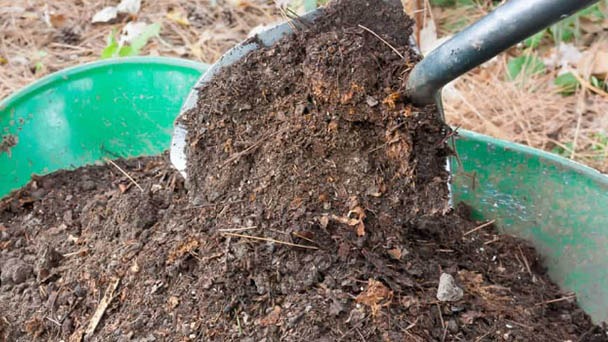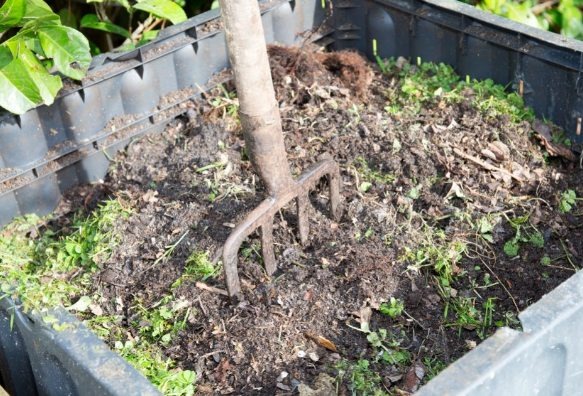How Long Does It Take to Make Compost - How to Speed It Up
Written by Ivy
Dec 29 2022

You should be aware that making compost requires patience if you choose to do so. It takes time to produce. Numerous factors will affect how long the process actually takes. Some experts think that a period of a few months to even three years is acceptable.
In a fast acting, hot composting process, it may take four to six months for all the material to break down. If the material is really thin, the process might go more quickly. It could take the passive compost six to twelve months to complete the transformation of all that garden waste into finished compost.
How Long Does It Take to Make Compost?
Depending on the method you choose, making compost can take anywhere from 24 hours to a year or more. The quickest way to make compost is with electric composters, which can decompose your food waste in as little as 24 hours. Other indoor composting techniques typically require a lot more time to produce compost than do outdoor techniques.
Based on the method you choose, here are some rough timelines for composting:
- Electric countertop composter: The fastest method, which takes 16 to 20 hours to produce usable dirt.
- Indoor composting: The longest method, ranging from 2 - 12+ months.
- Outdoor composting: This process can produce usable compost in as little as one month and as long as a year.
You'll comprehend what we mean better once we go into more detail about these concepts later on.
8 Factors That Affect How Long It Takes for Compost to Be Ready
The speed of decomposition will ultimately depend on a variety of different factors when working with compost. Let's delve into what can influence how quickly or slowly the finished compost can be made.1. How Hot Or Cold It Is
When dealing with an outdoor compost bin or compost pile, seasonal conditions will significantly impact how long it takes for organic materials to break down. The warmer the environment, the more efficiently the microorganisms responsible for composting will work. This is why many people who have their own compost bin or compost pile will cover them during the winter months - there's just not a lot going on, and they want to retain as much heat as possible.
2. The Composition of Green Versus Brown Material
Optimal compost outcomes come from a mix of wet "green" materials and dry "brown" additions. As they decompose, green materials release nitrogen, while brown materials release carbon. Both of these elements are essential for the decomposition process, and the right mix will ensure the process occurs efficiently. Shown below is a table with a few examples of green and brown materials:
|
Green Materials |
Brown materials |
|
Vegetable peels |
Corn stalks |
|
Grass clippings |
Pine needles |
|
Tea bags |
Coal ash |
|
Chicken manure |
Shredded cardboard and paper |
|
Crushed eggshells |
Small woody branches & dried leaves |
3. The Size and Shape of Material in Your Compost
Composting is always sped up by first breaking down organic material, regardless of the precise technique used. Smaller bits of organic material decompose faster than larger ones. After all, the organisms responsible for the bulk of composting's heavy lifting are microscopic! Even vermicomposting, which utilizes worms to aid the process, will benefit from smaller materials.
4. The Overall Volume of Your Compost Pile
Maintaining the proper volume is important when composting. Too densely packed compost cannot properly aerate, which causes it to become waterlogged and odorous. It will also lack oxygen which is another crucial element to getting usable compost in a shorter time frame. On the flip side, compost that is too loose will aerate excessively, resulting in loose, dry, and often low-value material, and that's not the kind of good compost we're looking for.

5. The Size of Your Compost Pile
The total volume of your compost pile will also have an impact because temperature has a significant impact on how quickly organic waste decomposes. Having a larger pile means that the temperature of the compost will be able to build up higher and faster than a smaller pile. So, if you're composting outside, one big bin will finish faster than multiple smaller piles.
6. How Moist the Compost Is
The ideal moisture level must be attained for your compost to finish as quickly as possible. Moisture in the pile will improve oxygen flow through the waste, which will facilitate the breakdown of the organic material by beneficial microorganisms. However, too much moisture in your compost bin will cause it to become a soupy mess, which is not what you want. Always have the sensation of a wrung-out sponge when handling your compost pile.
7. How Easily Digestible the Organic Matter Is
When we're composting, we rely on microscopic organisms (and sometimes bugs) to digest and break down waste for us. Well, some organic material is just simpler to digest, so it will compost more quickly. As an illustration, because they contain more lignin than materials like grass clippings or shredded paper, branches and leaves are harder to digest and decompose more slowly.
8. Technology You're Using to Help With the Process
Technology can also impact how long it takes for compost to break down. This technology can take the form of basic garden tools to aid in the aeration process all the way up to electronic composters that essentially do all the work for you!
By simply pressing a button, Lomi can convert your food scraps into nutrients for plants.Ingredients You Should Avoid When Making Compost
Regardless of whether you need compost as soon as possible or you can wait a year or two to let it adequately mature, there are ingredients that you shouldn't add to the compost pile at all:
Meat, fish, dairy, fats, and bones – Avoid adding animal products since they will probably ‘overheat' the compost pile.
Organic material that is difficult to decompose: Blackberry and raspberry brambles, thick branches, and long twigs shouldn't be included in your compost because they will significantly slow down the decomposition process.
Coal ash – Although you can combine wood and cigarette ashes with other compostable materials, you should stay away from coal ashes. For the safety of your plants, it contains an excessive amount of sulfur and iron.
Colored paper – Newsprint and other colored paper shouldn't be added to the compost pile because colored inks have high levels of toxic substances, including heavy metals.
Pet droppings – You should be aware that pet waste, particularly that of cats and dogs, frequently contains disease-causing organisms that can contaminate your compost. It is more secure to avoid adding them to the compost pile.
Diseased plants – You run the risk of dispersing disease throughout your garden once you use compost if you add such plants to your pile.
Inorganic materials – Metals, glass, aluminum, or plastics can never decompose in any way. Adding them to the compost pile serves no purpose at all. Also, avoid pressure-treated lumber because of potentially toxic chemicals it is treated with.
Synthetic chemicals – All herbicides and pesticides are harmful, and you shouldn't mix them with your compost material.
How Long Does Compost Take to Break Down?
Each compost pile has its own unique timeline for when compost turns into soil. The types of materials you use, how you balance brown and green materials, how much moisture is in your compost pile, and how well heat is retained all affect how quickly composting proceeds.
With an electric composter like Lomi, which can finish the job in under a day, food waste can be composted the quickest. Without Lomi, though, it's going to take much longer. In ideal conditions where you do everything right, it will take at least a month to go from compost to soil. It's not exactly simple to get everything right, especially the first time. Making compost soil will most likely take several months to a year or more.
For the quickest decomposition rate, you should strive to achieve as many ideal composting conditions as possible.
Conclusion
Make composting a regular part of your life. By doing so, you'll preserve the environment by producing less waste, while also providing your garden with crucial nutrients.
The type of materials you add to the pile and the size will both affect how quickly you get the top-notch compost for your garden. Additionally, the speed of the process will be impacted by your hard work. Your compost will decompose faster and more effectively if you turn the pile frequently.
Latest Updated
- Benefits of Bugleweed - 7 Science-backed Health Benefits
- Bugleweed Dangers & Side Effects - Is It Poisonous?
- How to Plant Evergreen Trees - What You Should Know
- When to Plant Evergreens - Grow Guide for Evergreen Trees
- 12 Wonderful Evergreen Shrubs for Your Garden
- 12 Popular Evergreen Plants with Pictures for Beginners
- When And How To Prune A Lilac Bush Like a Pro
- How to Grow & Care for Lilac Vine (Hardenbergia Violacea)
- Japanese Lilac Tree (Syringa Reticulata) Care & Propagation Guide
- Shumard Oak Pros and Cons - What to Know
Popular Articles
- Winter maintenance of Antirrhinum Majus
- How to Grow Terminalia Mantaly Tree
- How to Grow and Care for Crossostephium Chinense
- How to grow Antirrhinum Majus in spring
- Peristeria Elata (Dove Orchid) Profile: Info & Care Guide
- Underwatered Snake Plant (Sansevieria Trifasciata) - Signs And How To Fix
- How to Care for Brazilian Jasmine Plant (Mandevilla Sanderi)
- How to Grow & Care for Graptopetalum Purple Delight in Summer
- Rosa Chinensis (China Rose): Plant Growing & Care Tips
- How to Care for Baby Sun Rose (Aptenia Cordifolia)